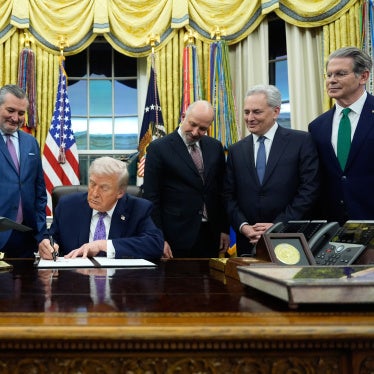While not present in person, Edward Snowden’s figurative presence permeated this year’s annual Stockholm Internet Forum.
Unlike past years, where optimism about Internet-driven opportunities for economic development and social innovation were on display, the overarching theme of this year’s conference was the dark side of digitization when it comes to privacy and freedom of expression.
The conference focused on a deeply problematic reality: governments around the globe have failed to bring existing communication surveillance techniques under the rule of law in a manner consistent with democratic governance and international human rights.
Conference participants from the global south emphasized that in many parts of the world, basic freedoms in both the offline and digital realms are not secured by the rule of law. As a result, unchecked digital communications surveillance techniques have become a primary means through which human rights are systematically undermined and violated. Several participants highlighted the fact that digital technologies have made it easier for authoritarian governments to monitor, filter, censor, and intimidate citizens than they are otherwise able to do in the offline world.
As the Snowden revelations have shown, even in democracies where governments champion the rule of law, little progress has been made in bringing modern surveillance practices into conformity with basic rights.
Part of the problem is that privacy protections have lagged technological developments.
There are both international and domestic laws that address privacy and related rights, but how they’re applied in practice hasn’t kept pace with governments’ rapidly increasing surveillance capabilities.
Last September, a large consortium of NGOs released a set of principles related to human rights and surveillance. These “13 Necessary & Proportionate Principles” started a much-needed conversation about how to apply existing human rights law to digital surveillance. A fundamental underlying principle is that surveillance should be targeted and essential to a legitimate aim. Additionally, states must be transparent about how surveillance is undertaken.
Sweden, which hosted the conference, put forth a minimalist set of principles. The United States has its own version as well, but rejects the “necessary and proportionate” standard established in international scholarship and jurisprudence in favor of “non-arbitrariness.” This difference is significant. The US considers its mass surveillance “non-arbitrary” even as it follows extremely permissive interpretations of the law by a secret court, whereas the rest of the world thinks “non-arbitrary” means lawful surveillance must be necessary and proportionate to protect an important government interest like national security.
The conference brought attention to the pressing need to bring communications surveillance techniques within the rule of law, consistent with international human rights obligations. The US proposed standard for permissive controls on surveillance is a significant obstacle that other concerned actors should work together to oppose.







